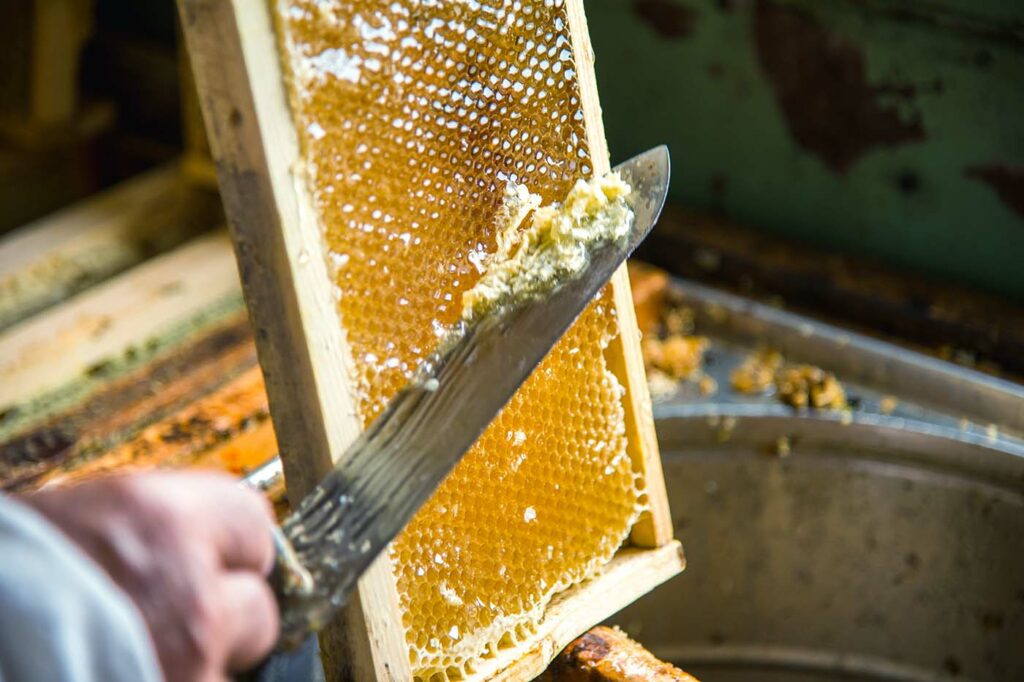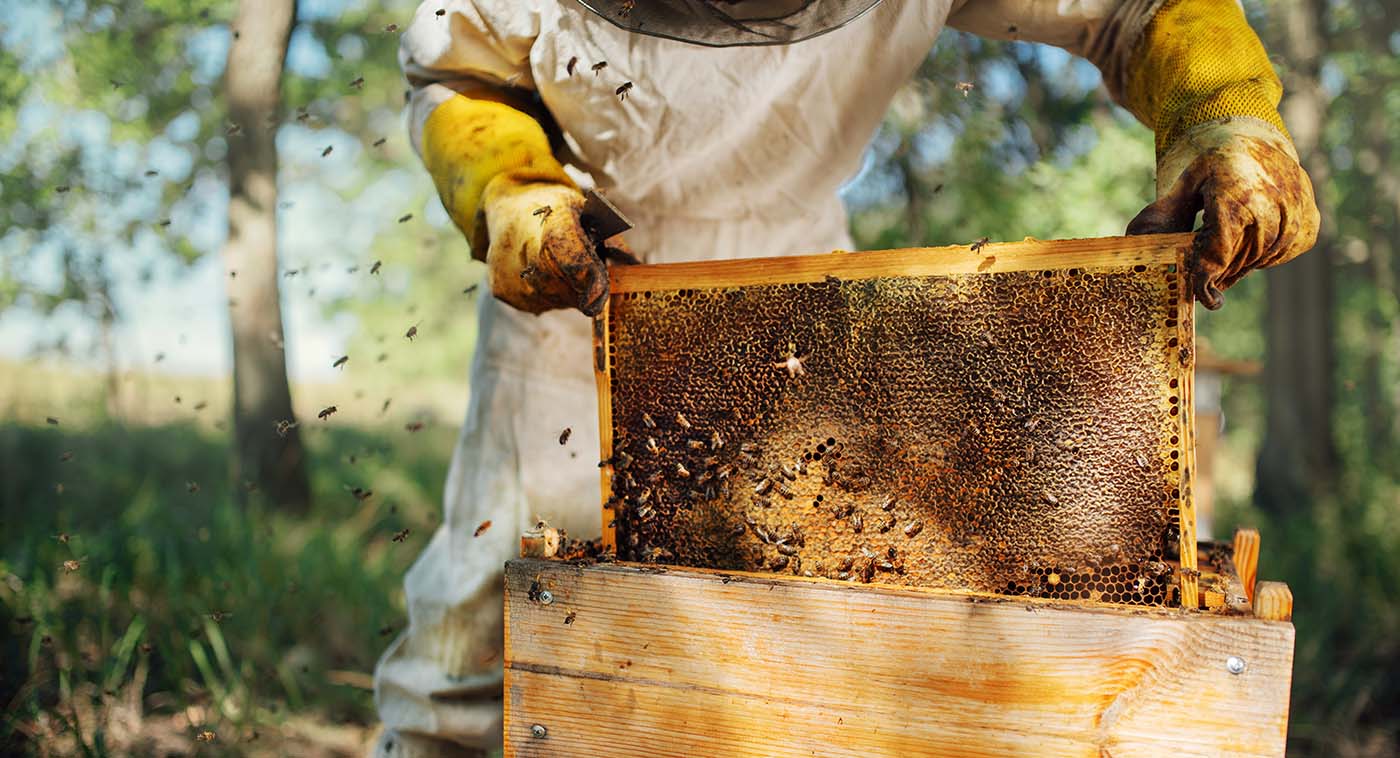How to become a bee keeper?
After a very busy summer spent relocating and removing bees from premises all over the county, one question that has cropped up often is: How to become a beekeeper? In this article, we share top tips and advice and also the benefits of becoming a bee keeper.
The Importance of Bees
Bees are of huge importance to the planet and our food chain. Around 80% of all flowering plants have evolved to be pollinated by insects such as bees. Without bees, these plants could potentially die out. Among the plants that rely on pollination are many of the crops that we humans and also our farmed animals rely on, such as broccoli, peas, beans, beetroot and potatoes. It has been estimated that in the UK alone farmers would need to spend £1.8 billion a year to manually pollinate crops. Imagine what that would do to food prices. As such Bees are a vital part of our ecosystem and economy and should be protected as much as possible. At iX5 Pest Control we always try to relocate problem bee colonies from buildings to our own apiaries or to others in the region, to help these colonies survive.
How to become a bee keeper
We recommend before you consider getting any bees that you sign up to complete a beginners beekeeping course with your local beekeeper’s association. This course will give you all the knowledge you need to start beekeeping successfully. It will also give you an opportunity to make contact with other experienced and new beekeepers. There are also plenty of books available to enhance your knowledge too. It is also important to get some ‘hands-on’ experience with bees as you wouldn’t want to go to the time and expense of setting yourself up as a new beekeeper to find that you don’t like having large numbers of bees buzzing around you when you open up the hive, or that you are allergic to their stings!
Let’s take a look at the equipment needed to be a beekeeper
- A suitable hive. The National Hive is a trusted go-to for hives. We would advise when starting as a new beekeeper, that you have a small colony with around 5 frames inside the hive.
- Suitable protective clothing
- A smoker and fuel
- Hive tools
- A feeder and feed are also likely to be required in some instances
- You will also need to be considering the equipment needed for extracting honey from the frames, although some beekeeping associations loan this out to members
We would always recommend buying the best quality that you can afford as good quality items will stand the test of time.
It is also recommended that beekeepers should keep at least two hives, so you can always ensure the colonies survive should something unfortunate happen to the queen in one colony, and that colony fails to raise a new queen during the relatively short time available to them to do this.
Where to place your hive
When it comes to locating your hives, the more space the better, although bees are kept in some city locations or other locations where space is tight. Ideally, there will also be a water source nearby as well as an abundant source of local forage, through the spring, summer and autumn months. Locating the hives so they are facing a hedge or fence will help ensure the bees fly above head height when coming to and from the hive. This is beneficial where the hives are located in residential areas. The British Beekeepers Association (BBKA) have a land offer service where they can put you in contact with others who have land which they will allow bees to be kept on. We don’t recommend you locate a hive near a neighbour’s garden or a footpath as during inspections of the hive there can be a lot of flying bees.
Populating your hive
So, you’ve now got the kit, found a plot of land that is suitable, the next thing is to get some bees. We always recommend only populating your hive with local bees. Bees can be sourced from other local beekeepers and, again, the BBKA has a link to all the regional beekeeping associations, who will be able to help you source your bees and also give you great hints and tips on how to get started.
Looking after your bees
Bees don’t just look after themselves, you will need to be able to invest some time in them. In the winter it is a little easier, but you can’t ignore them. You’ll need to regularly check the hives to make sure they haven’t been disturbed, the hives may need insulation and also protection against mice. During the winter it is important to monitor the bee’s food stores as you may need to top up their food if they haven’t stored enough to get them through the winter. In the warmer months, you will need to check the health of the colony as well as the laying queen and the larvae. Ideally, you want to see white c-shaped larvae and a consistent pattern of eggs in the centre of the hive. It is important to check on the size of the colony too as you may need to perform a ‘split’ to prevent the colony from swarming if they get too overcrowded.

How to become a bee keeper
The thing with beekeeping is that you’ll never know everything right from the get-go and you will get stung. Don’t be afraid to reach out to other local beekeepers for advice, though as it is a very friendly community. Although a note of caution – there is a well-known saying amongst beekeepers that if you ask two beekeepers a question, you are likely to get three different answers!!
Setting up in beekeeping doesn’t have to be massively expensive, and it isn’t that hard to look after bees in general if you understand the basics, but the payback is incalculable. Not only will you get fresh honey from each hive (between 10 and 20kg on average per hive – depending on the weather and available forage) and you can’t get better than hive fresh honey, the benefit to the food chain and the ecosystem is immense. There are also huge benefits to physical and mental health by getting outside and spending time close-up with one of nature’s most interesting creatures!

